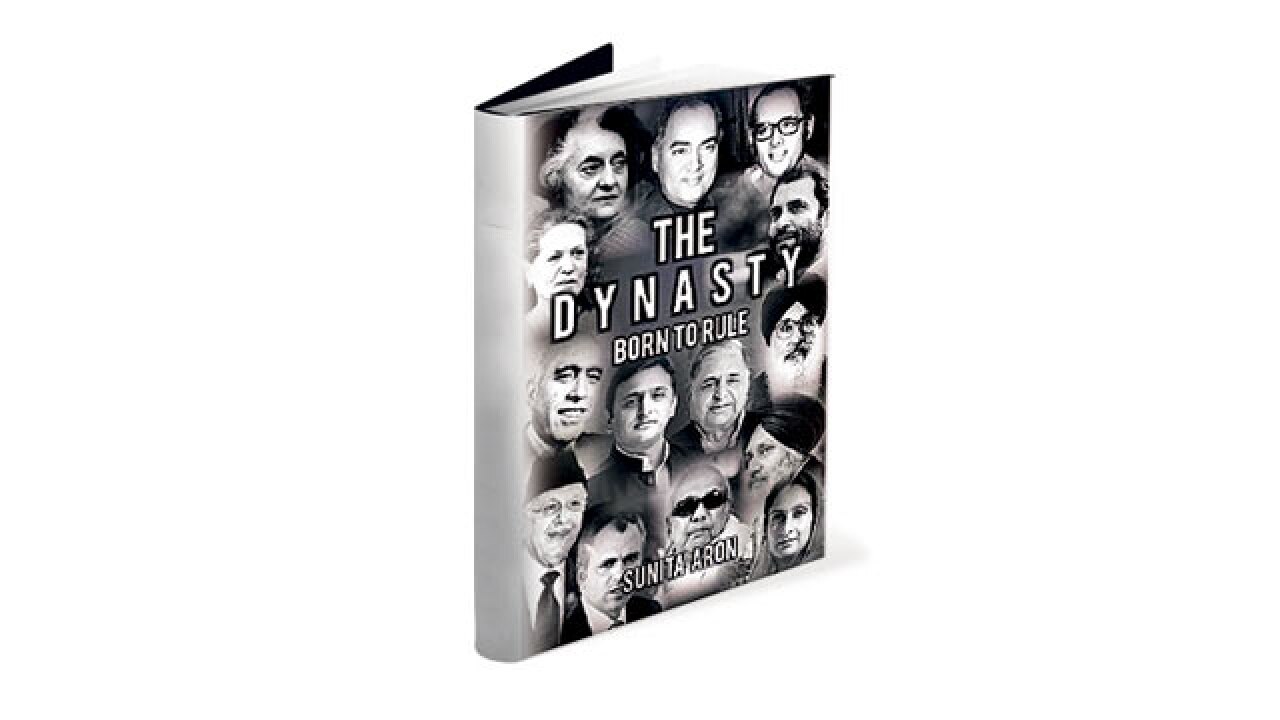
It may be cliché to say that dynastic rule has become a defining feature of the Indian political economy. Perhaps in an ode to our society's ability for jugaad and co-option, as India made the transition from colonial rule to Independence in 1947, feudalism too adapted itself to the system of participative governance, standing out as an anachronism in a democratic policy.
In the 1990s, senior journalist Varunraj Bhide had noted how Maharashtra's politics was controlled by about 160 clans. The story is no different across India, with power and its pursuit being a largely esoteric activity restricted to few entrenched political families as the presence of the Gandhi-Nehrus, Chautalas, Badals, Yadavs, Scindias, Pawars, Mundes and Thackerays stands testimony to.
Equipped with lineage, money power and control over resources, members of these families dominate power structures in a neo-feudal system where an accident of birth can shape one's life.
In The Dynasty: Born to Rule, senior journalist Sunita Aron analyses the growth and domination of dynasties. She points out that no mainstream political formation, including the BJP, which claims to be against dynastic rule, has been unaffected by it. In fact, every fifth Parliamentarian in the present Lok Sabha comes from a political family. The BJP's platitudes towards ending dynastic rule notwithstanding, Aron notes that 15 per cent of its Parliamentarians are products of lineage.
Ironically, during the 2014 Lok Sabha polls, then-prime ministerial candidate Narendra Modi had tapped into the latent sense of outrage in people at this sense of privilege while presenting himself as the quintessential outsider.
Aron pinpoints the greatest weakness of the Congress: its inability to look beyond the Gandhi family for leadership even during its biggest crisis while heir apparent Rahul Gandhi has failed to rise to the occasion with his knee-jerk, hit-and- run politics. Even seasoned Congressmen admit that the country's most famous dynast today has so far failed to distinguish himself in the political arena either through Parliamentary interventions or at grassroot level, constituency politics.
The author also bares what goes on in the 'hidden chambers' of politics, with tacit understandings being struck by leaders who otherwise create a public persona of being sworn enemies.
In 2014, while incumbent union HRD minister Smriti Irani gave Rahul a tough fight in Amethi, Ajay Agarwal, the BJP's candidate against Rahul's mother Sonia in Rae Bareli, was let down by the party because Modi did not campaign for him. Even the Congress nominee in Modi's constituency of Varanasi felt dejected as Sonia did not campaign there against her bete noir in what seemed to have been a quid pro quo.
"How can dynastic rule in the country end without defeating dynasts? And how would one defeat them without challenging them in their very comfort zones?" questions Aron.
Like his father Rajiv Gandhi's famous speech in Mumbai in 1985 vowing to eliminate power-brokers in the party, Rahul's talk of opening up the system, which in its current closed form allows the children of politicians to rise, may well end up as another unfulfilled promise.
In fact, most dynasts and scions of political families consider it a matter of right and privilege to be in electoral politics – like the daughter of a senior politician once told this reviewer – because she was her father's daughter!
Using the voices of common people from the Pawar family pocket-borough of Baramati as a template, Aron also writes about the reality of development in VIP constituencies. As most observers of politics in Maharashtra will admit, her observation about the real estate driven business model of its politicians, who have primary interests in land (and the private education and co-operative sectors) is spot on.
Anecdotes about stalwarts like former Prime Minister Lal Bahadur Shastri and Kamlapati Tripathi, with the former standing out for his probity and the latter, for his commitment to secularism, bring them to the fore as men cut from a different cloth – Gullivers among lilliputians.
One cannot help but note that the book needed tighter editing. Though it lays down the politics of NCP chief Sharad Pawar and his family, it fails to write in-depth about another reigning dynasty of Maharashtra – the Thackeray clan, the schism between cousins Uddhav and Raj and their competing nativist Senas. Though the book says "many in Maharashtra feel the Shiv Sena was becoming increasingly irrelevant," the party is number two in the Maharashtra legislature and it would perhaps be difficult to be dismissive about its social and political base. Moreover, former Maharashtra chief minister Prithviraj Chavan's mother's name was not 'Premila' but Premala, or Premalakaki as she was popularly referred to. Elaborate writing about political dynasties south of the Vindhyas would have also made the contents comprehensive.
While rising numbers of young, aspirational voters, growth of social media, education and the desire for upward mobility has led to many predicting that the epitaph of dynasty will be written soon, Aron states that "dynasties will not go till the caste system remains an integral part of our politics". She predicts that "dynasties may ebb in years to come not because the party workers or the public would move out of the feudalistic mindset, but because the new generation politicians lack the political wisdom and passion of their forefathers..."
Perhaps on a philosophical note, this prevalence of dynastic politics, acquisition of money through political power and the use of these slush funds to gain and re-gain power, points to a bitter truth. The saying 'Yatha raja tatha praja' (The subjects are like the king) may have to be turned on its head to say that the king may be like his subjects in a society that is increasingly becoming de-sensitised, money-minded, materialistic, extractive and uses the ends to justify the means. After all, people get the politicians they deserve.